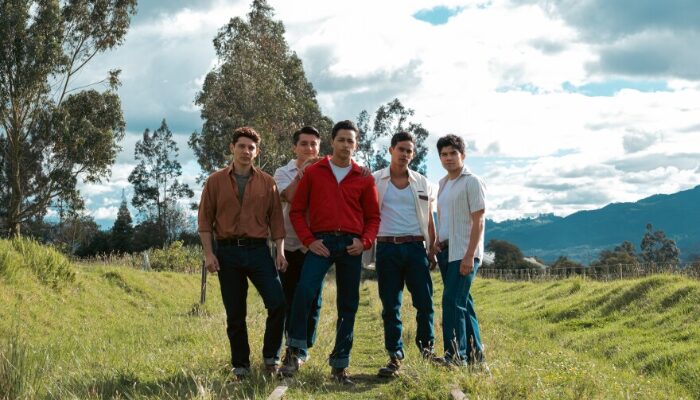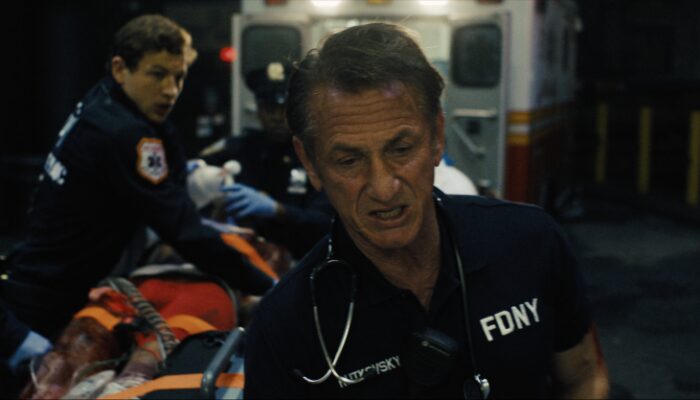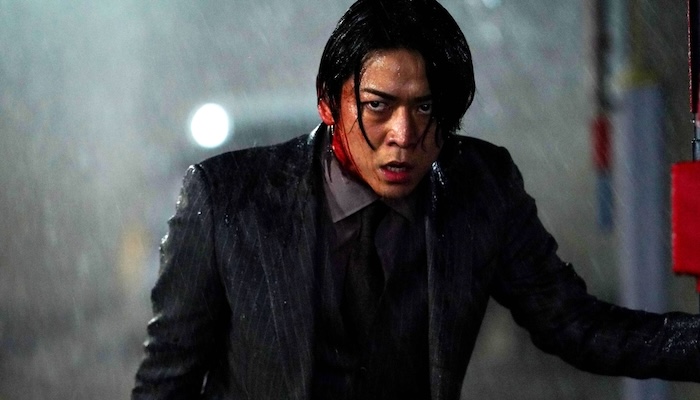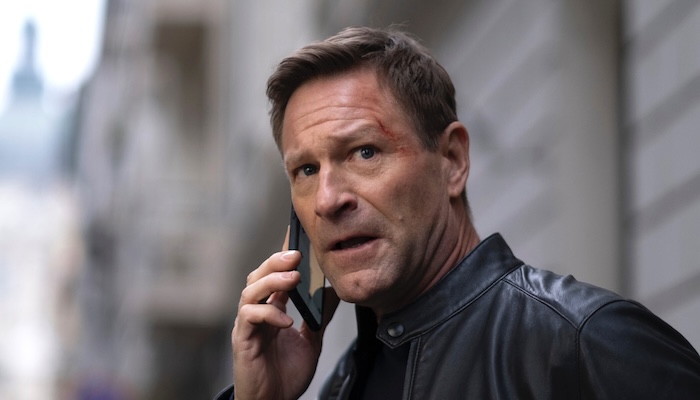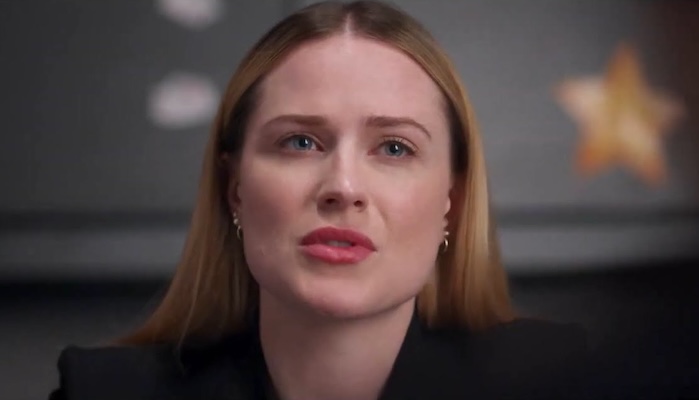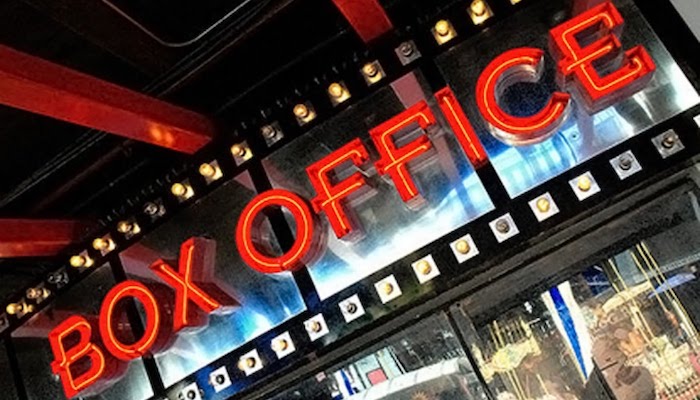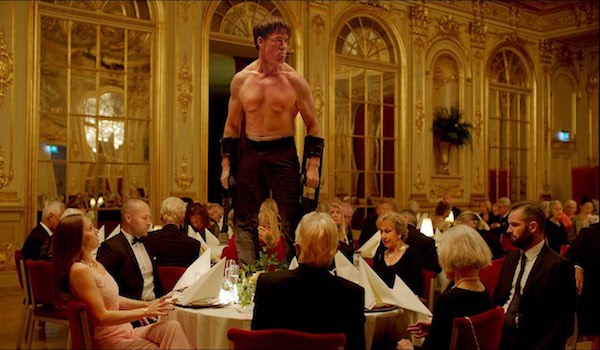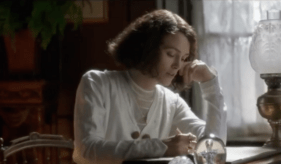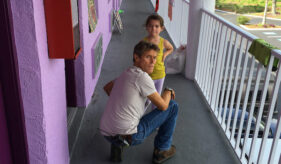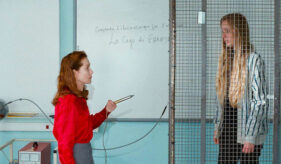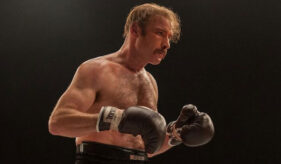Film Review: THE SQUARE (2017): Social Justice, Public Outrage, & Finding Your Own Path [NYFF 2017]
Table of Contents
The Square Review
The Square (2017) Film Review from the 55th Annual New York Film Festival, a movie directed by Ruben Östlund, starring Claes Bang, Elisabeth Moss, Dominic West, Terry Notary, Christopher Læssø, Linda Anborg, Emelie Beckius, Sarah Giercksky, Annica Lieljeblad, and Jan Lindwall.
If you’ve seen one of Ruben Östlund’s films, you know there’s something inherently scandinavian about them. It’s not just that the man himself is a Swede – it’s the relational aesthetics, as some characters in The Square would describe it as, that give his films and their themes an interesting bent. Christian (Claes Bang) is the curator of one of Oslo’s most prestigious museums of modern and contemporary art. He moves from magazine interview to pitch meeting, from museum gala to after party, all the while attempting to maintain an image and a set of ideals that seem to define him as a person. Naturally, this will inevitably not hold, and difficult self-confrontation awaits.
The inciting incident here is that Christian is robbed, while attempting to cross a city plaza to get to work. He moves past a homeless person lying unconscious on the ground, and an activist asking if he’d like to ‘save a life?’, declining to stray from his usual, regular, familiar path. He is, after all, an important, semi-recognizable figure in Oslo, and has important, significant work to do at the museum.
When he and a coworker decided to distribute threatening flyers to a building that Christian’s phone has been tracked to (using the all-too helpful ‘track my phone’ feature), telling everyone with a mailbox there that he’ll punish the thief who wronged him – things begin to change. Suddenly, Christian begins to lose his cherished balance and career/personal homeostasis. Anne (Elisabeth Moss) is another confrontational element to Christian’s stable existence. When she demands to know why he didn’t call her after they had sex, or if he often sleeps with women without knowing their names – Christian claims he’s offended at all these questions, and that it isn’t fair of her to do so. But Östlund seems to be of two minds, here – Anne isn’t wrong, that Christian is conveniently using his status of a combination of power and male dominance in slipping in and out of situations he prefers or dislikes. But Christian isn’t wrong either, in having the freedom to make a choice.
It’s positions like these that Östlund seems most interested in – men with societal, racial, power-related, cultural privilege, and how they decide to behave in this brave new world, where everything is an issue of social justice. In regards to the SJWs of our contemporary, modern world, The Square has a few things to say about that, too.
In an attempt to wow patrons and donors of the museum, a dinner party for the upper echelon is held, at which an exciting, very modern exhibit will take place – namely, a man pretending to be a chimpanzee, navigating through the dinner tables, bothering patrons, eventually climbing on top of tables, and ultimately – attempting to rape a woman. Besides the fact that Östlund masterfully maneuvers in and out of comedy and dread, it’s a scene like this that attempts to portray how ridiculous it is to designate spaces for art and for reality. The eponymous square is meant to force upon people the responsibility to be kind and fair to everyone, but it doesn’t really work like that, does it. Christian learns that lesson when he realizes that his childish flyer distribution actually affected people’s lives negatively, and he attempts to right his wrongs.
But apologizing to every single individual living in a tenement isn’t a feasible option either. Neither is resigning from his post, and publicly apologizing for his supposed unforgivable act of condoning a tactless YouTube video meant to market the museum’s upcoming exhibition. He’s lying, when he apologizes – because he never knew what he was approving in the first place. You can tell he’s aggravated at the seeming requirement for a man being forced to apologize for something he doesn’t feel guilty of. Moments like these perfectly reflect the utter banality of our recent social justice landscape, where not everything deserves a beaten, insincere apology out of.
In the end, The Square – which is two and a half hours long – is a really well-crafted movie in regards to cinematography, acting, and pace. It moves briskly, is often incredibly funny, and makes you think about art, public justice and corporate mob mentality, your own behavior, and what you can do about issues yourself. Ruben Östlund and Claes Bang did an incredible job at making the central narrative work. You really give a shit about Christian, thanks to Östlund’s grounded, engaging script and dialogue, and Bang’s incredibly endearing performance. In other words, the relational aesthetics between the two really bring about a powerful juxtaposition of inspiring modernism to the screen, if you know what I mean.
The Post-Screening Q&A Session
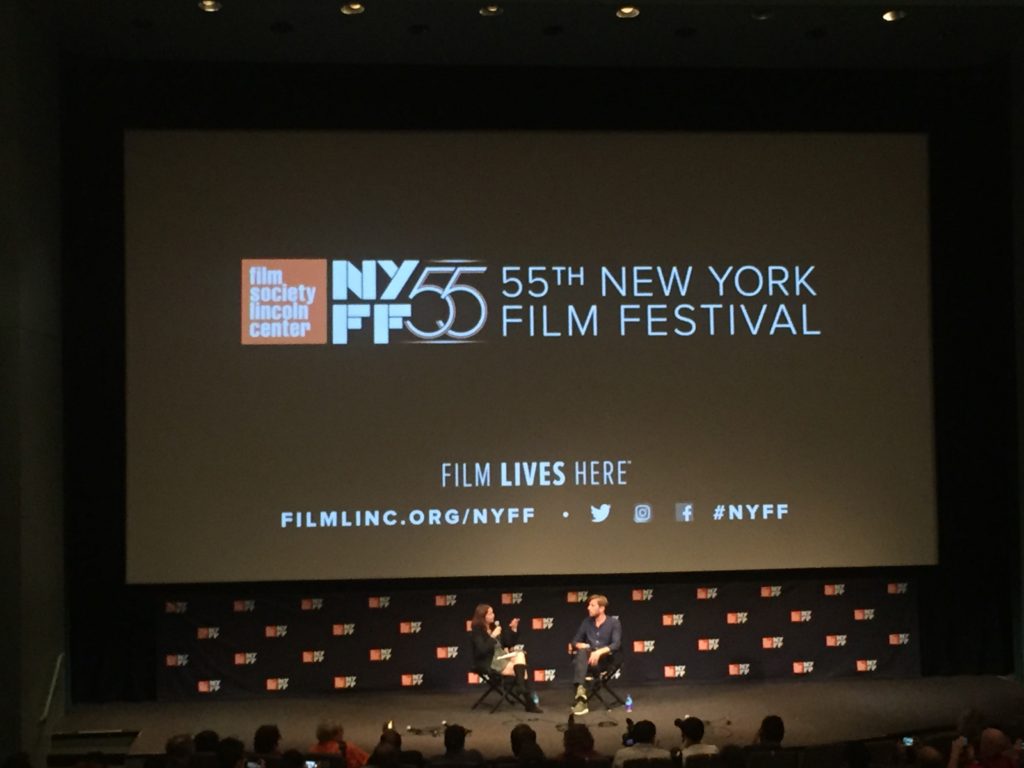
It was at the 2011 New York Film Festival, at a screening of Östlund’s Play (2011), that the writer/director was first inspired to make this film. He had gone through court files of a case in Sweden where kids were robbing kids at a shopping mall, and none of the adults did anything about it. His father had told him that Östlund’s grandfather used to put a lanyard around his neck, before allowing him to go outside and play – a lanyard that had Östlund’s father’s name and address written on it, should he ever get lost. This made the director ponder how vastly our social contracts had changed in relation to public spaces. At first, the public space at the forefront of his mind was that shopping mall, then a cross guard – a few simple lines make people adhere to a social construct of when and how to walk – and eventually, the ultimate museum setting.
In regards to the stolen cell phone plot point, this actually happened to a friend of Östlund’s. As a matter of fact, as is often the case, numerous situations in The Square are based on events that occurred in the director or his friends’ lives. Östlund explained that it was one of the producers of Force Majeure (2014) that had her phone stolen, which she then tracked to a building in Gothenburg, where she indeed distributed 50 flyers throughout the mailboxes.
The writer/director expounded on what he finds interesting in being a man nowadays, and how he prefers a protagonist to be flawed and make mistakes, because that is something we can all relate to. “When kind of stupid behavior is possible…we understand that this mechanism is actually possible for me, also,” he explained. It’s the relating to familiar decisions or opportunities that Östlund finds most fascinating, and is something that he attempts to inject into every film of his.
When the moderator commented on how the film makes fun of everyone – not just one group of society – Östlund playfully agreed, stating that it’s a “very humanistic approach.”
As I touched upon in the review, Östlund is interested in men in modern, western society because things have changed so dramatically since his childhood (not to mention, the last five or ten years). He explained that nowadays we really question our roles as men, that we look at our privilege far more than we used to. In which way am I contributing to this patriarchy? How do I fight against it? Östlund concluded that, personally, he tries “to go close to myself…morally…ethically in my everyday life.” This, naturally, heavily influenced the main character’s personality and the dilemmas and situations he faces in the film, as well as the central theme.
Östlund explained that Christian has an idea about society that actually is very humanistic, but he doesn’t manage to live up to them when certain situations arise. That’s what the writer/director finds interesting – men with clear stances, that are either evaporated or reinforced when the moment of truth stands in front of them. This is most evident in Force Majeure, of course, when a man abandons his family during an avalanche to save himself, only to have that disaster end before it kills anyone at all. He then has to confront his behavior, as well as his family.
Regarding the chimpanzee dinner scene, Östlund simply search YouTube for “actor imitates monkey” – a very direct and astute way of finding the right man for the job, presumably. He found Terry Notary, and a video him working on Rise of the Planet of The Apes (2011), in which he imitated a gorilla and a chimpanzee. He then called the actor, asked him if he’d like to play the part of Oleg, and found him agreeable.
Perhaps the most enjoyable admission during this Q&A session was Östlund’s explanation that he was thoroughly excited to have been accepted to the Cannes Film Festival, because the tuxedo-wearing audience would be confronted by the chimpanzee dinner scene, during which a tuxedo-wearing audience, in a prestigious gala setting, was demoralized, demeaned, and forced to confront their own behavior. After all – it took a very, very long time for the characters in the scene to spring into action. They’d like to believe that they’re upstanding, righteous people – but when a situation arose where they’d actually be extremely useful, 99% of them did absolutely nothing. I found it quite endearing to feel Östlund’s glee and excitement at the prospect of forcing this down Cannes’ audience members’ throats.
The writer/director met with Elisabeth Moss and Dominic West in London, for some improvisational scenes, and was fairly nervous – he so enjoyed their performances and working with them, that he feared he’d cast them, and thereby lose the Scandinavian identity so important to him and his films. He’s strongly trying to retain that, no matter how many non-Scandinavian actors join his future prospects, because he feels that audience members find it intriguing. “Something is different,” he teases. Östlund says “(I) really want to try to keep that approach….the Scandinavian look (is a ) unique way of looking at the topics in the films.”
Working with Moss and West, Östlund explained, must’ve been a glaring transition for the two actors, as the writer/director does as much as 40 takes of most scenes, whereas TV actors such as Moss and West are probably accustomed to four or five. This may be a stretch on the director’s part, but it’s unclear.
Rating: 8.5/10
Leave your thoughts on The Square review and The Square below in the comments section. For more film reviews, visit our Movie Review Page, our Movie Review Facebook Page, our Movie Review Google+ Page. Want up-to-the-minute notifications? FilmBook staff members publish articles by Email, Twitter, Tumblr, Google+, and Facebook.
Related Articles
FilmBook's Newsletter
Subscribe to FilmBook’s Daily Newsletter for the latest news!

